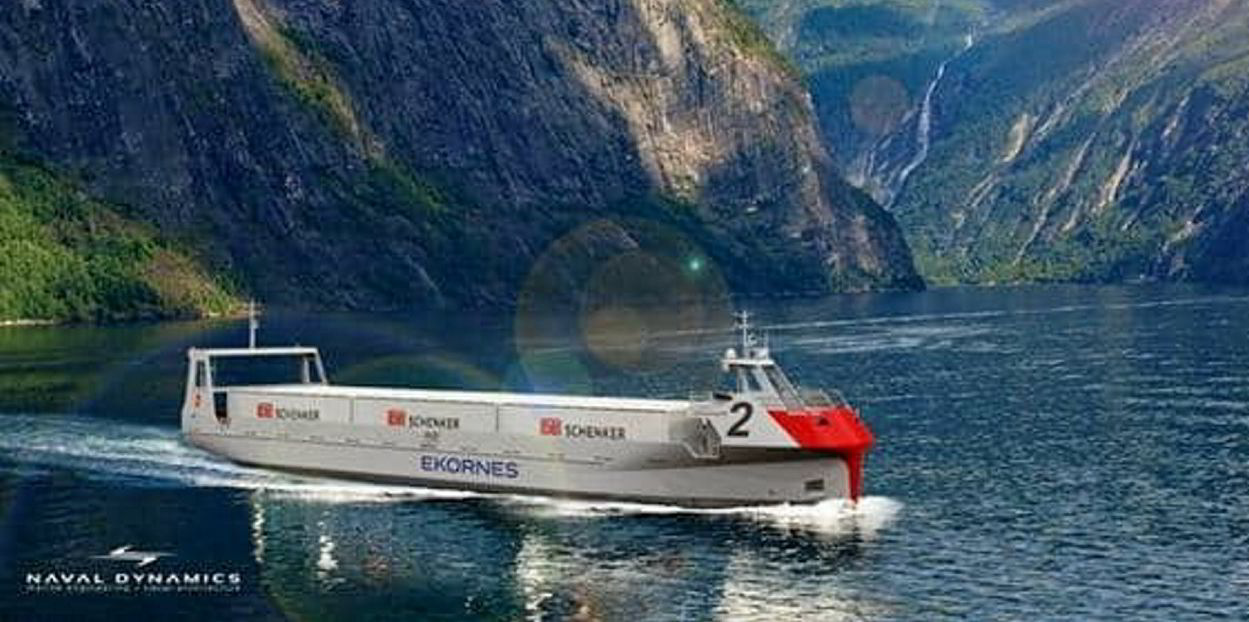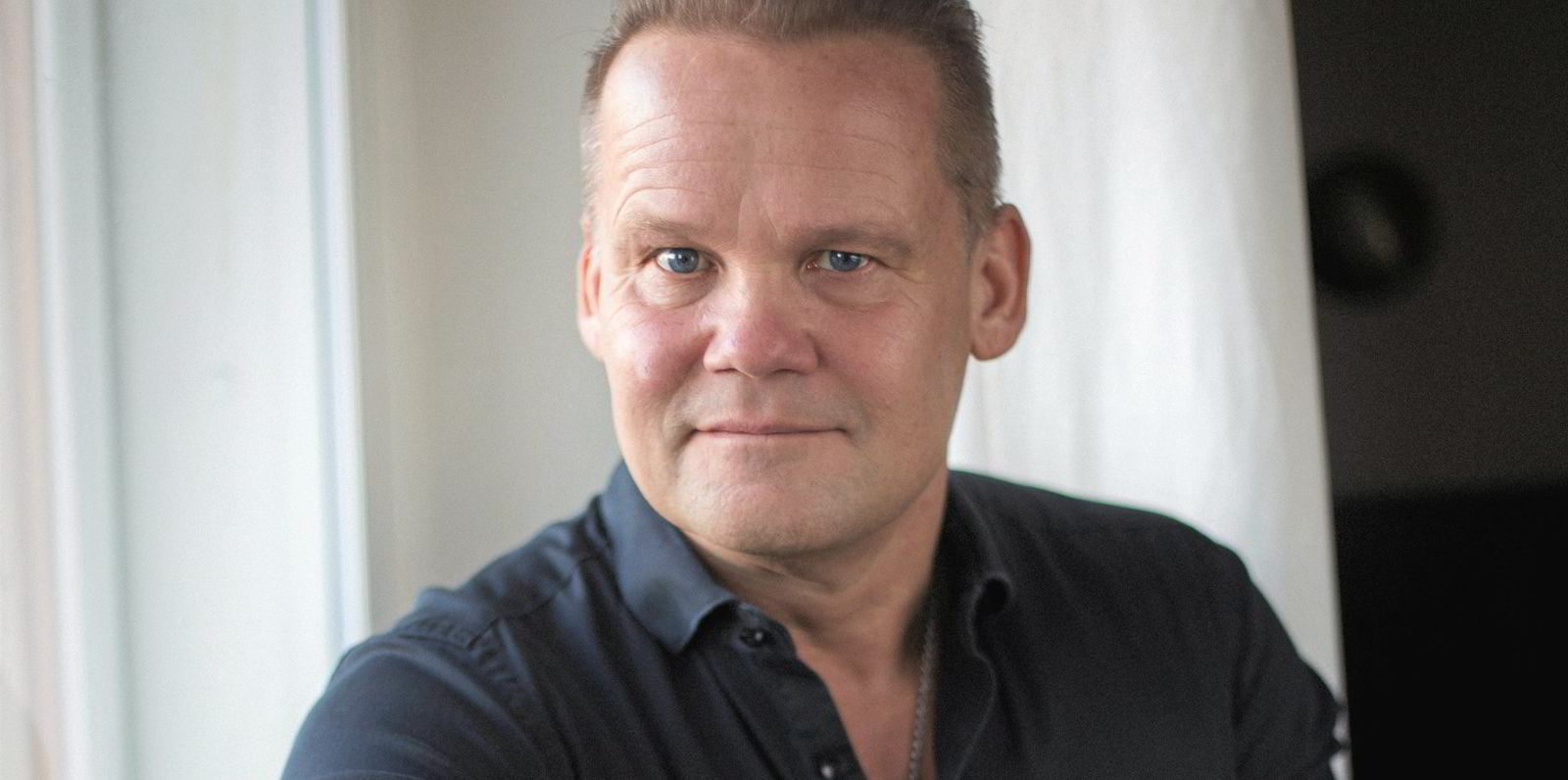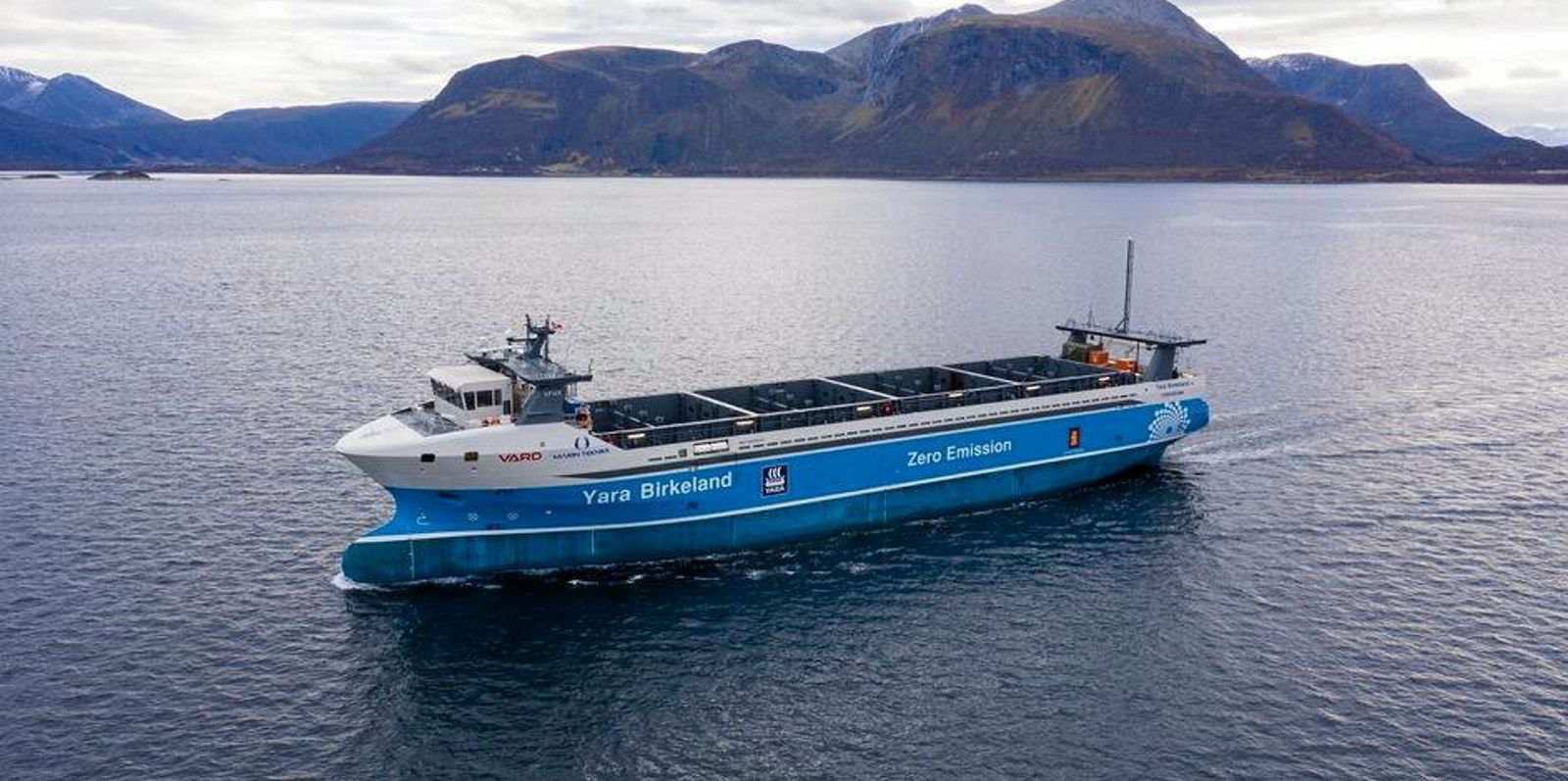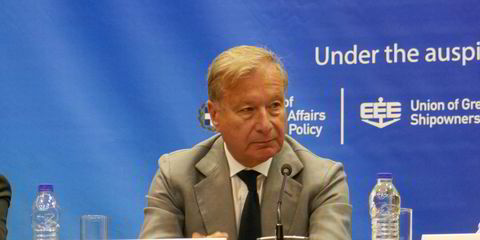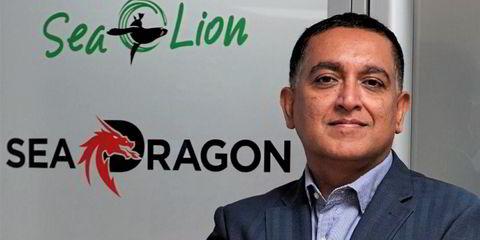Logistics provider DB Schenker has unveiled plans for an autonomous, zero-emission container feeder ship that will operate along the coast of Norway.
The team behind the fully electric vessel also includes furniture company Ekornes, vessel designer Naval Dynamics, Kongsberg and Wilhelmsen Group-backed Massterly.
The project’s backers say the new design will replace traditional feeder vessels utilised along the stretch of the Norwegian coastline around Ikornnes and Alesund.
The vessel, which will be 50 meters long and able to carry 300 deadweight tons of cargo, will complete the 23 nautical mile (43 km) journey within three hours, at a speed of 7.7 knots.
It has been designed from the keel up for autonomous and zero-emission operation and will be monitored and controlled by staff at Massterly’s remote operation center (ROC).
Masterly, which will be the vessel’s operator and technical manager, is a joint venture between Kongsberg Maritime and the Wilhelmsen Group and is the world’s first company set up to operate autonomous vessels.
DB Schenker said the planned two-way data communication solution between the vessel and the ROC is destined to be another game-changer in the ocean freight sector.
“This unique project marks another important step toward greener supply chains, and it also fits in perfectly with our overall sustainability agenda in ocean freight,” said Knut Eriksmoen, CEO Norway, DB Schenker.
Ekornes chief executive Roger Lunde said the project would enable the company to meet its sustainability targets by using the most innovative technology available.
“Utilising the autonomous electric container feeder for direct pickups of our products from our own dock in Ikornnes means that our total carbon footprint will be reduced significantly. We will also gain better control over, and greater flexibility with, our own logistics,” he said.
Kongsberg chief executive Geir Haoy said the project is representative of a general shift away from road transport of goods – with its considerable carbon footprint – toward clean, energy-efficient, short ocean freight transport.
Kongsberg is currently involved in several fully electric and autonomous vessel operations, including Yara Birkeland and ASKO.
Naval Dynamics chief executive Oystein Jaer said the benefits from the project will be numerous, and include zero emissions, faster and more efficient transport, and reduced traffic on roads.
“As they lead the way to climate neutrality, the parties’ common interest is to unveil this pioneering vessel in Norway and then take the next crucial steps forward by obtaining approval from the Norwegian Maritime Authority, and possibly governmental incentives for the sustainability and technology aspects,” he said.
